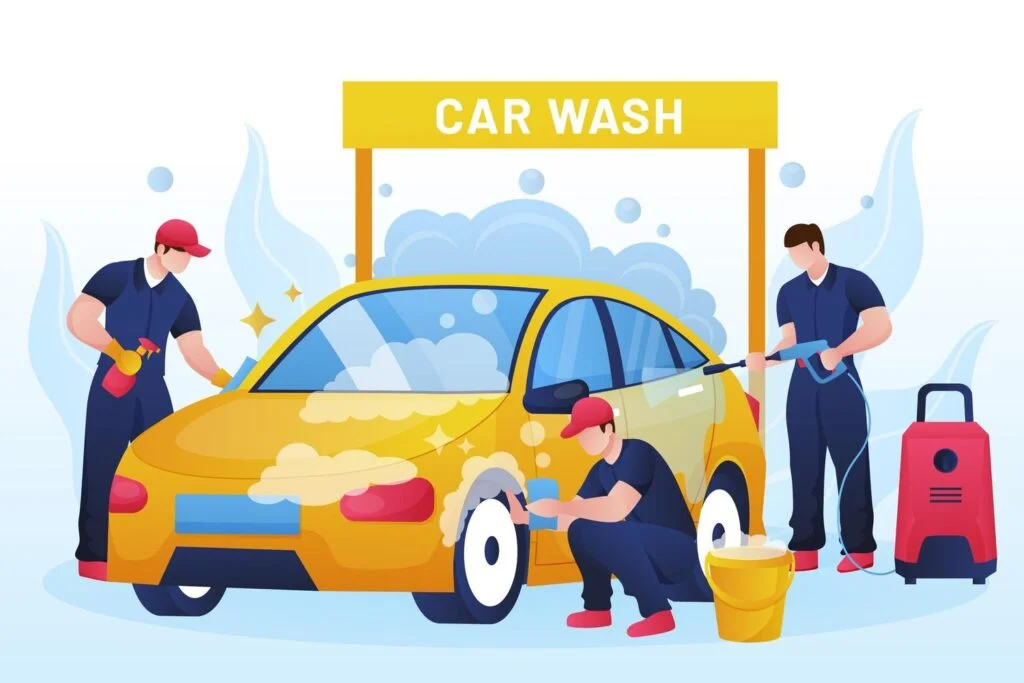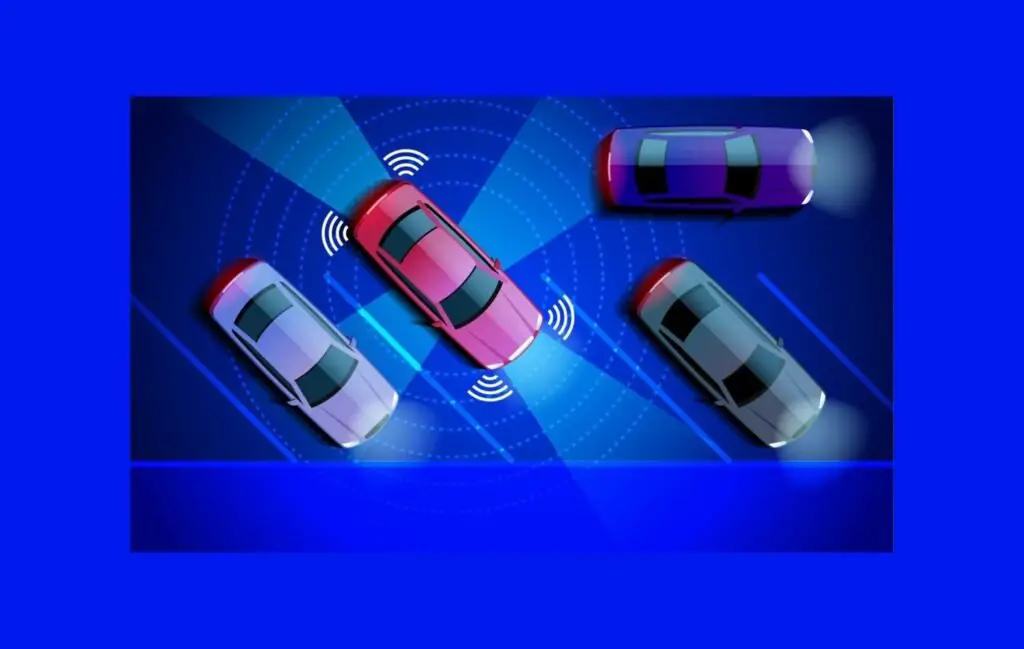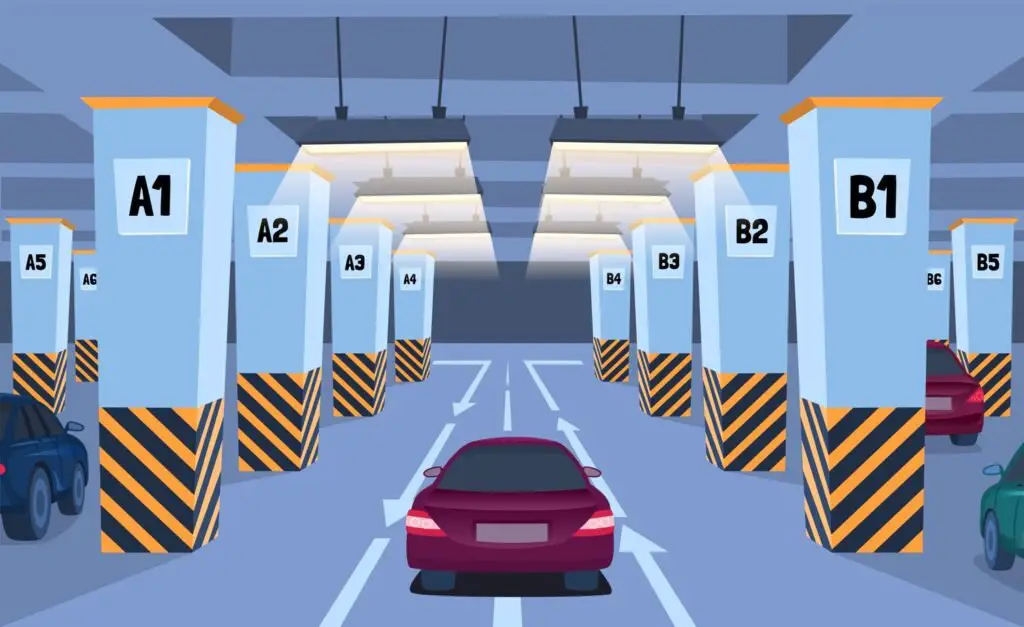7 Important Things to Know Before Getting Automatic Car Wash
Although many people discourage automatic car washes, but still these are quick, convenient, and popular. They’re ideal for busy schedules and keeping your vehicle clean without much effort. But is an automatic car wash always the best option? There are a number of things to note before opting for a touchless car wash option for your car, because,
Automatic car wash isn’t a perfect car cleaning option for every car!
Concerns like avoiding damage to your car’s parking sensors, side mirrors, and paintwork make many drivers think twice. This guide breaks down everything you need to know about automated car washes so you can make an informed decision.
Factors to Consider Before Automatic Car Wash

Many people forget to consider the important factors that can make your car wash experience better or worse. Such as getting a brush automatic car wash won’t be a good idea if your car is in a condition prone to scratches. Or, you might be unaware of automatic car wash warnings and ultimately get unexpected bad wash results. on top of that, you might forget to remove any loose items from your car such as a cell phone, bottle, lighter, camera, or anything else.
Let’s come to the point!
1-Determine the Type of Automatic Car Wash
Not all automatic car washes are the same. For example, you might have a fear of brushes that may cause paint scratches and want to have a touchless car wash. That is why It’s crucial to figure out which type of automatic car wash is feasible for your car. Here are the main types to consider:
- Touchless Car Washes:
These use high-pressure water (almost 40% greater than manual wash pressure) jets and cleaning chemicals without physical contact. They’re great for minimizing scratches but might leave behind stubborn dirt and grime. - Soft Cloth Car Washes:
These use soft cloths or brushes to scrub your car. They’re effective for deeper cleaning but can cause scratches if the equipment isn’t well-maintained. - Hybrid Systems:
A mix of touchless washes and soft materials. These balance effectiveness and safety, making them a good choice for delicate paintwork.
Each type has its pros and cons. Choosing the right one depends on your car’s condition and your cleaning needs. Some require you to drive in, park, and wait as the cleaning finishes. Others use a conveyor track to pull your car through multiple stages. This system often needs one front wheel to fit into a slot. However, wider wheels on modern vehicles might not fit and could get damaged. Always check the track size before entering. Some washes also need your car in neutral, so ensure your transmission supports this to avoid issues.
Also Read Motorhome with Solar Panels: How to Travel Off-Grid Without Worry
2-Read Instructions by Car Washer
You might think it’s not that important, but reading the instructions and warnings of specific automatic car wash procedures hinders unexpected car wash dangers. So, always ensure to have a look at the instructions provided by your car washer.
3-Check the Condition of the Equipment
Not all automated car washes are created equal. The condition of the wash equipment plays a big role in the safety of your car. Poorly maintained brushes and clothes can trap dirt, which may scratch your paint. Similarly, outdated or faulty equipment can leave streaks or damage accessories.
Always choose a car wash with good reviews and a reputation for keeping their equipment in top shape.
4-Compatibility with Car Features
Never forget to ask the car washer if their auto-car system is compatible with your car’s features or not. Modern cars come with sensitive features like parking sensors and wiper blades that may not fare well in an automatic wash. Cross-check your car features with these points and opt for the best auto car process that offers the least danger to your car:
- Parking Sensors: High-pressure water can cause malfunctions or false alerts.
- Side Mirrors: These can be dislodged or scratched if not retracted properly.
- Wiper Blades: Older or loose blades might tear under the force of water or brushes.
Before using an automatic car wash, ensure these components are secure or consider alternative cleaning methods.
5-Ensure That Your Car is Waterlight
You might forget to close your car completely while having an automatic car wash. Before entering an automated car wash, check that all your windows and sunroof are fully closed. It’s easy to forget, but leaving them open could soak your car’s interior. If you have a wide vehicle, like a large SUV or pickup truck, fold in the side mirrors. This prevents them from hitting the washing equipment and getting damaged. A quick check can save you trouble later!
6-Keep Checking During the Car Wash
Keeping your hands and arms in the wash process helps to minimize risks. During the wash process, drive slowly and follow the attendant’s instructions. Misalignment on the track can lead to accidents. Besides, after getting the car wash done, check it for possible left things or make sure everything is in order. Inspect your car for scratches, missed spots, or damage to sensitive components. If necessary, wipe down areas that the automated process missed.
7-Manual Wash Process May Be Best For You
Hand washed processes are always been a priority of many people. Because the percentage of avoiding damage to your vehicle is less in the human car wash process. If you are among those people who are concerned about car damage, must go for a manual car wash process. The professional technician can help you clean each corner of the car perfectly and also the process is gentle on your car. Moreover, it’s more water efficient and gives you room to control the detergent chemical and polish your car. Although automated car washes are a good source of quick vehicle cleaning, but they’re more expensive and dangerous at the same time. It all depends on your needs, time, and budget. So, opt for whatever goes well for you but keep all the mentioned points in mind if you want an automated car washed instead of a manual one.
Wrapping Up
Automatic car washes are a convenient way to keep your car clean, but they come with risks. By understanding the types of automated washes, seeking instructions and warnings, assessing your car’s compatibility, and checking the wash process, you can enjoy the benefits without worrying about damage.
So, is an automatic car wash a good idea? Absolutely—if you choose wisely and prepare your car. Now it’s your turn: try a touchless car wash or explore alternative methods for safe cleaning.
Keep your ride shining and protected!
Frequently Asked Questions
Do automatic car washes damage car paint?
Many believe that scratches can occur due to poorly maintained wash equipment or debris stuck in brushes. Touchless washes are a safer option for reducing contact with the car’s surface.
Are touchless car washes as effective as traditional ones?
Touchless systems are great for preventing scratches but may not clean heavy dirt and grime effectively. Combining with manual cleaning can give better results.
How often should I use an automatic car wash?
It depends on driving conditions and weather. Once a week is sufficient for general maintenance, but too frequent washes can wear down your paint protection.
Will an automatic car wash damage my side mirrors or sensors?
Modern car washes accommodate most vehicles, but loose or fragile parts like parking sensors or wiper blades might need extra attention. It’s best to inspect the car before and after the wash.
Can I trust automated car washes to clean all areas?
Automated systems might miss tight spots or corners. A quick manual wipe afterward ensures a thorough clean.



